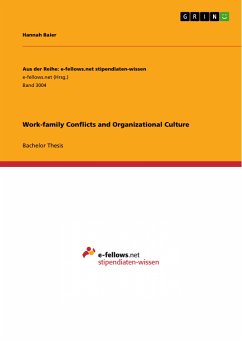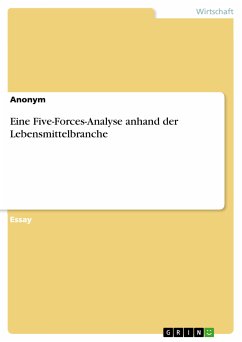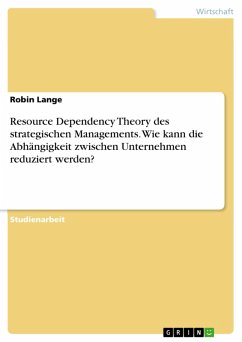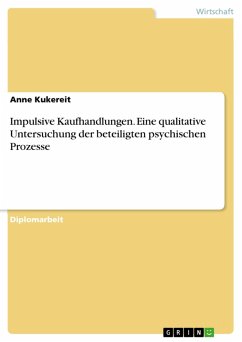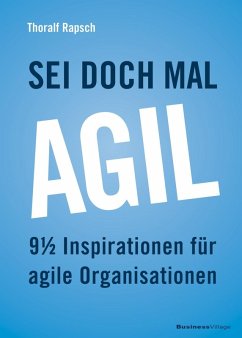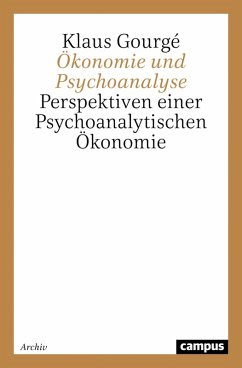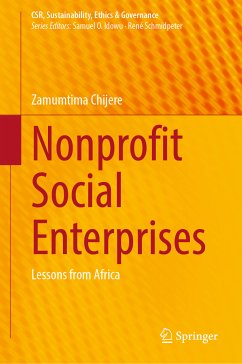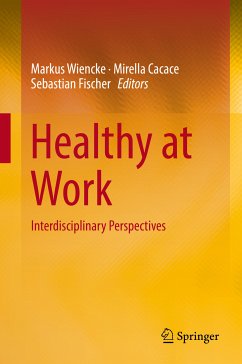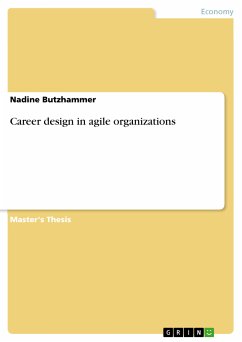
Career design in agile organizations (eBook, PDF)
Versandkostenfrei!
Sofort per Download lieferbar
Statt: 47,95 €**
36,99 €
inkl. MwSt. und vom Verlag festgesetzt.
**Preis der gedruckten Ausgabe (Broschiertes Buch)
Alle Infos zum eBook verschenkenWeitere Ausgaben:

PAYBACK Punkte
0 °P sammeln!
Master's Thesis from the year 2019 in the subject Business economics - Miscellaneous, grade: 1.0, University of Innsbruck, language: English, abstract: In 1946, Einstein had already taught us that "a new type of thinking is essential if mankind is to survive and move towards higher levels". In times when markets are highly competitive and shaken by ongoing disruptions, the environment hosts a flood of information and thus becomes more complex. Internally, employees exert pressure with their requests for New Work approaches. Therefore, organizations need to apply a new way of thinking, as Einst...
Master's Thesis from the year 2019 in the subject Business economics - Miscellaneous, grade: 1.0, University of Innsbruck, language: English, abstract: In 1946, Einstein had already taught us that "a new type of thinking is essential if mankind is to survive and move towards higher levels". In times when markets are highly competitive and shaken by ongoing disruptions, the environment hosts a flood of information and thus becomes more complex. Internally, employees exert pressure with their requests for New Work approaches. Therefore, organizations need to apply a new way of thinking, as Einstein labels it, in order to survive in the predominant VUCA-world. Many organizations see agility as a panacea and thus, the term is currently on everyone's lips in the business world. New working conditions associated with agility, such as self-organization instead of managerial commands, constantly changing tasks instead of strictly imposed job descriptions and interdisciplinary networks instead of hierarchically structured job families, raise the question of how employees can pursue a career in such an organizational frame. Especially interesting in this context is the appearance of career steps as hierarchical levels increasingly disappear and employees have more decision-making power than their managers due to the new structures. Also the stakeholders regulating the career advancement of individual organizational members are of particular interest as agile organizations follow a servant leadership approach and contain only highly reduced Human Resouces (HR) functions. This thesis aims to examine the research question of how career design is interpreted in agile organizations. With regard to career research, new career models and attitudes appear in academic literature, such as the boundaryless and self-directed protean career, but so far no empirical studies have been carried out to show whether these are particularly prevalent in agile organizations. This thesis puts the topic center stage and aims to qualitatively examine and explore career design in agile organizations and to discuss it against the background of literary identified career design factors. For this purpose 19 representatives of agile organizations as well as consultants were interviewed. The empirical study revealed interesting insights especially concerning the relevance of jobtitles, the subjective notion of career steps as well as the role of the works council in agile organizations. Also a pattern regarding the involvement of peer regulation in different sections of the career process could be derived.
Dieser Download kann aus rechtlichen Gründen nur mit Rechnungsadresse in A, B, BG, CY, CZ, D, DK, EW, E, FIN, F, GR, HR, H, IRL, I, LT, L, LR, M, NL, PL, P, R, S, SLO, SK ausgeliefert werden.




